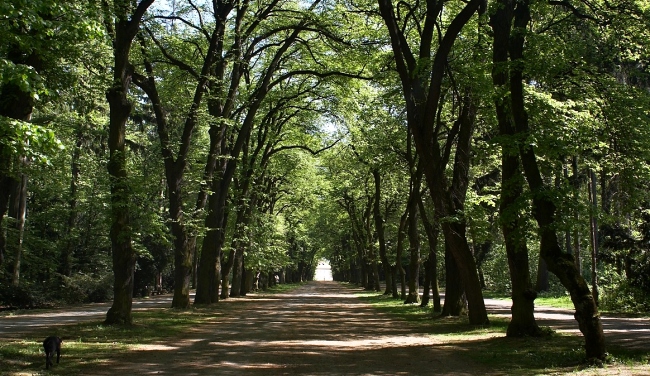
Architect Lešek: Prague lacks water and greenery in the heat
 |
Prague - Plants climbing up the facade of a building can cool it down by several degrees. According to architect Petr Lešek, there are many buildings in Prague whose architecture is not so valuable that it could not be covered by greenery; such an approach would be ideal for panel buildings. Prague lacks trees in the streets and water features, says the architect who focuses on improving public spaces. The problem lies in city administrations that cannot compel developers to build buildings that are more environmentally friendly and considerate of residents.
"Prague lacks trees that create a better microclimate. When you look at Budapest, Sofia, and Bucharest, their streets are full of trees, but not in Prague," said Lešek in an interview with ČTK. "Everyone says it’s hard to plant trees in the streets because there are networks everywhere and nobody wants to move them. But even when utilities are being repaired, the street gets dug up, it's put back together, and that’s it. However, the situation could certainly be used to plant trees if the activities were coordinated and a suitable time was found," he recalls. "It works just like it did 30 years ago - everyone does their own thing and nothing else interests them," he added.
Many city districts argue that the networks underground complicate the planting of new trees. However, in the center itself, underground collectors have been built at great expense, where all networks should be consolidated, and thus it should be clear where they are located. As one developer building near Wenceslas Square told ČTK, some newly constructed buildings still lay their utilities outside of these collectors and do not utilize them.
"Money is wasted on watering the streets, but what could be done for minimal cost does not happen. Prague lacks consideration of the fact that when something is done (in the city), it should be done with a long-term vision," says Lešek. He does not criticize developers who could be building buildings with better energy balances; the city, in his view, should know what it wants on its territory. "Somewhere else west of us, there would undoubtedly be some system of concessions: you build a little more, but then you give us, say, a park, or you provide part of the building for social housing. That's not here," he stated.
Minor adjustments to the city, which can collectively reduce the temperature by several degrees Celsius, can be made in the center, on the outskirts, and in the suburban landscape. In the center, there are stone buildings that can resist overheating to a certain extent. "But there are no fountains, there isn’t a single fountain in the Old Town Square. They used to be everywhere, they were removed, and now they are hard to bring back," Lešek reminds us of an important urban element, albeit with a different function today.
In historic centers, every square meter is important and needs to be taken care of, he adds. In city districts developed in the 19th or 20th century, water surfaces can be planned more generously. "In housing estates, they can add quality, just like green facades that can reduce the temperature by up to two degrees. In the Netherlands, there are playgrounds that function as reservoirs during heavy rains. Water stays there for ten days, drains slowly, and cools the air," he says.
In the territory of Prague, there are numerous tributaries of the Vltava River, streams, and ponds, which can also improve the hot urban environment by a few degrees. "But the Metropolitan Plan does not account for them. We have nothing but water and greenery. Even expensive air conditioning works on the same principle," he points out.
According to Lešek, the most important thing is to use common sense and to know that when a building with a glass facade is constructed, energy must be "forced" into it in the summer to cool it down. Therefore, it's essential to choose a certain ratio of glass to solid facade. However, even high cooling costs do not deter developers from constructing inefficient buildings - they will recoup those costs from office tenants who cool their employees with air conditioning, says Lešek.
The English translation is powered by AI tool. Switch to Czech to view the original text source.
3 comments
add comment
Subject
Author
Date
Chybějící stromy...
Vladimír Sitta
09.08.18 11:25
chybějící stromy
Zuzana Řezníčková
10.08.18 02:35
Puglia
Vích
12.08.18 11:35
show all comments












